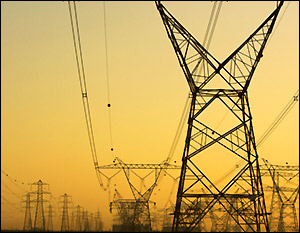Site Navigation
General Information
Sustainable Energy Technologies Department
Energy Policy and Technology Analysis
The group’s core focus is on long-term integrated energy, environmental, and economic analysis using the MARKAL family of models, a well-established tool for energy systems analysis. With 30 years of development under the auspices of the International Energy Agency, MARKAL has approximately 100 user institutions in more than 50 countries. A bottom-up analysis with explicit technology representation, the models include a physical description of energy technologies, and allow for “well-to-wheel” comparison of technologies and technological pathways. They study the impact of technological change/progress on energy markets, and provide a technology-rich basis for estimating energy dynamics over a multi-period horizon. They use a bottom-up approach to identify an optimal technology/resource mix to meet demands in an integrated energy market and identify the most cost-effective pattern of resource use and technology deployment over time. .
An original developer of MARKAL, the group is currently working with five MARKAL variants:
- Single region U.S. Model
- 10-region U.S. Model
- 15-region Energy Technology Perspectives (ETP) Global Model
- New York City Model
- Multi-region Long Island Model (under development)
The group also provides MARKAL training and assists in new model development.
Recent Projects
- Government Performance and Reporting Act (GPRA) Benefits Analysis
- Annual assessment of the U.S. Department of Energy’s RD&D portfolio.
- Frequent quick “turn around” analysis for the DOE Office of Policy and International Affairs on U.S. energy policy proposals.
- Energy-Water Nexus
- Global Biofuels Study
U.S.-India-China Cities
This project establishes a network for U.S. and Indian municipalities to share best practices on energy, environment and sustainable development. BNL is working to establish a network of U.S. and Indian municipalities to collaborate on the issues of mutual interests based on clean development, energy and environment, and share the lessons learned from every city’s experience to augment other participating cities capabilities. They hope to identify and respond to a range of barriers that limit implementation and management of sustainable urban development practices and plans. Atlanta and Ahmedabad, signed a MOU on March 13, initiating a first-ever US-India cities partnership on energy and environment. Participating Indian cities include Delhi, Mumbai, Chennai, Bangalore, Ahmedabad, Bhubaneswar and Vadodara. Participating Chinese cities are Shanghai, Guangzhou, Hefei, Kunming, Ningbo, Tianjin and Beijing.
Participating U.S. cities: Chicago, Atlanta, New York, Denver, Columbus, Los Angeles, Edison, San Francisco and Seattle.



